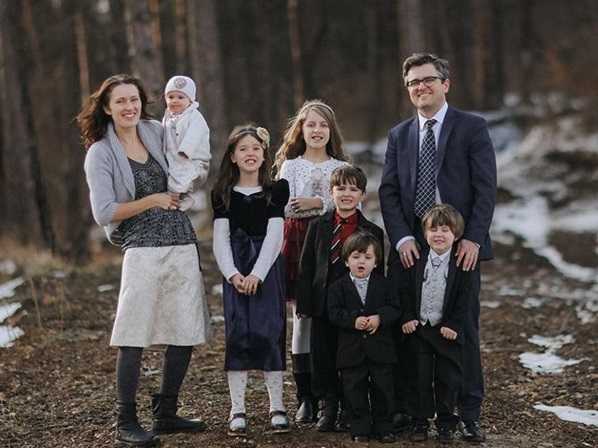 After agreeing last year to hear the case, the European Court of Human Rights has now decided to dismiss a legal challenge filed by a Christian family whose children were seized by Norwegian child welfare agents after the school principal contacted authorities to express concern over the manner in which the children were being raised, including that they were sometimes spanked.
After agreeing last year to hear the case, the European Court of Human Rights has now decided to dismiss a legal challenge filed by a Christian family whose children were seized by Norwegian child welfare agents after the school principal contacted authorities to express concern over the manner in which the children were being raised, including that they were sometimes spanked.
While the court concluded that Marius and Ruth Bodnariu had not availed themselves of possible localized means to obtain vindication after their children were returned, the family says that was not a feasible option for them.
“The decision is a blow to the family, who argued before the European Court of Human Rights that any further remedies in Norway were illusory at best,” Christian Concern outlined in a blog post on Thursday.
“They would not risk further punishment and separation of the family by going back into the system that had so ill-treated them, especially after all of the international media attention the case had garnered. Asking them to go back into the proverbial lion’s den would have been cruel, and something Ruth and Marius Bodnariu would never put their children through,” it explained.
As previously reported, in 2015, Norway’s child welfare agency, Barnevernet, seized the Bodnariu’s two daughters, two sons and then-baby Ezekiel after being informed of concerns about the home life and upbringing of the children.
The two eldest children were reportedly removed from school without their parents knowledge, and Barnevernet representatives soon also arrived with police at the Bodnariu home, where they seized the remaining children, minus the baby. The organization returned the following day and removed the infant as well when attempts by the Bodnarius to resolve the matter were not successful.
The matter began when the principal of Vevring School contacted the Department of Culture to outline the content of two conversations with the couple’s daughters, which included being occasionally spanked.
The letter was forwarded to Barnevernet, which reached out to the principal. According to reports, the principal also expressed concern that the family’s religious beliefs might stunt the girls’ development — but only requested counseling for the children as she did not believe the Bodnarius were abusive.
[T]he principal stressed that she was only requesting the Barnevernet’s counseling services, as the girls are intelligent and creative, and that she, the principal, doesn’t believe that the girls are being physically abused at home,” Daniel Bodnariu, Marius’ brother, said in a statement in 2016.
“This same principal had previously scolded and categorically forbid one of the Bodnariu girls from singing as a result of the girl singing a Christian song to her schoolmates,” he advised.
But despite the principal’s request for counseling only, the Barnevernet instead pursued proceedings against the parents, alleging that they had abused the children.
“The Barnevernet ordered extensive medical examination of the children, as there was no evidence to support the allegations of physical abuse, but the medical reports emphasized that there was no sign of physical or mental abuse,” Bodnariu stated.
After interviewing the couple’s two daughters, who reportedly conjured up information about their family life — such as that they would be punished if they did not know the Bible from memory, Barnevernet returned and took the rest of the children into government custody, dividing them up into three different foster homes.
In realizing that the seizure was unjust, the matter resulted in protests against Barnevernet around the world, including in Romania, Spain, the United Kingdom and Poland.
Seven months later, in June 2016, the children were returned to their family. The Bodnarius then fled Norway to find freedom in Marius’ homeland of Romania, and Mrs. Bodnariu gave birth to a sixth child.
Attorneys for the family soon filed a complaint before the European Court of Human Rights, stating that Norwegian officials had violated Article 8 of the European Convention on Human Rights, which protects the right to privacy within a family.
While the court originally agreed to hear the case, it has now found the matter to be inadmissible as it believes the situation should have first been addressed in Norway.
Roger Kiska, an attorney with the Christian Legal Centre, said in a video released about the case on Friday that the incident reflects a broken welfare system that could adversely impact any family.
“I think what’s important about this case is that you have a loving family, a Christian family, a gentle family, who has been torn apart by a broken system filled with prejudices, lack of due process [and] a guilty until proven innocent mentality,” he stated.
“I think what they represent is every family out there, that this can happen to anyone.”
As previously reported, Barnevernet also took a young child into custody in 2018 as his parents had been homeschooling him for a time since he had been bullied at school. Leif and Terese Kristiansen had planned on sending their son back to school once they found a better location for him to attend.
According to Ray Skorstad, founder of the legal assistance group Barnets Beste, the government took Kai because they believed the child needed to be in school for “socialization purposes” and thought that the family was “avoiding them.” Following intervention from the Homeschooling Legal Defense Association (HSLDA), the boy was allowed to return home with his parents.
Become a Christian News Network Supporter...


